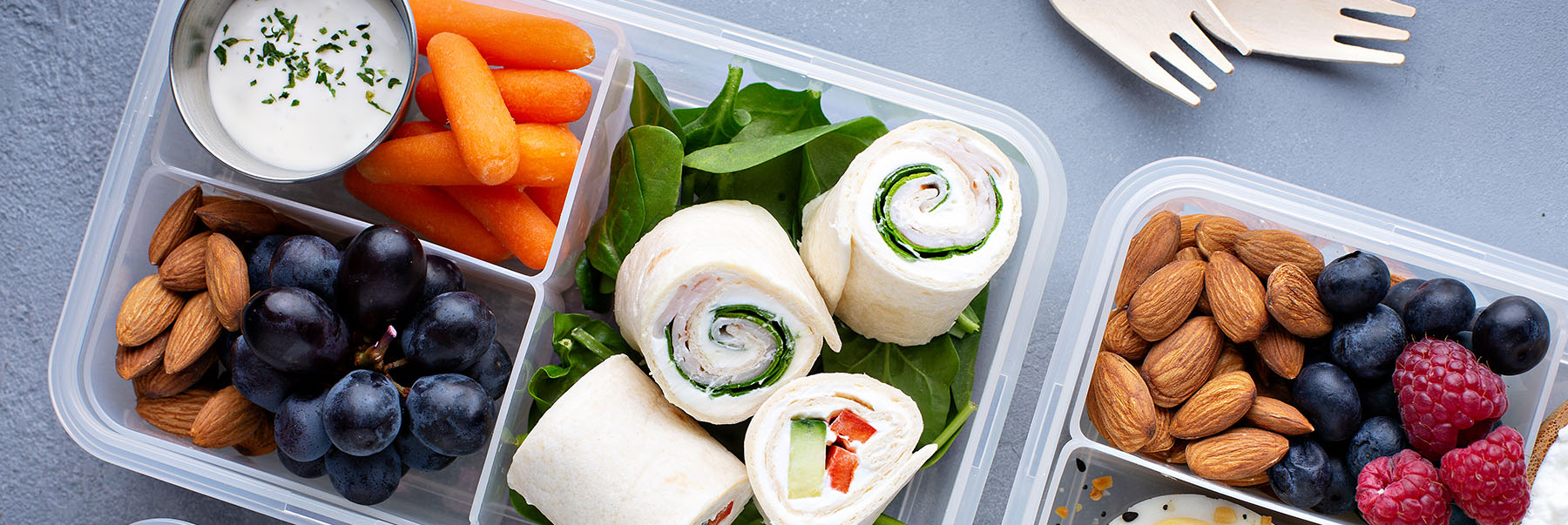How to Snack Better

In some circles, snacking has gotten a bad reputation. Done right, however, a snack can be a powerhouse mini-meal that helps you meet your nutritional goals. It comes down to two important factors: what you eat and how often.
“Generally, we want a snack that gives you more than just calories,” says Veruska Gonzalez, MS, RD, CSOWM, LDN, a clinical dietitian with the University of Miami Health System. “We also want it to be nutritious and filling.”
A combo snack of protein, carbs, and healthy fat — apple slices with peanut butter, for example — will keep you satisfied longer.
“A doughnut is tasty,” she adds, “but it doesn’t last that long. You’ll end up being hungry again before your next meal.”
Snacking habits: age, health conditions, and calorie goals
Not everyone wants or needs to snack. Some people can go hours between big meals without any pangs of hunger.
Most of us, however, have certain internal cues that get our stomachs rumbling. For many, three square meals may not keep the “hangries” away. For others, such as those who need to gain weight, snacks are essential to meet calorie goals.
Snacking habits are also dependent on age and health condition. Children don’t always eat as much as they need in one meal, so a snack is a good supplement. For grownups who suffer from reflux, smaller, more frequent meals help with symptoms.
Gonzalez offers this rule of thumb: “If you’re going to be spending more than four hours between meals, I suggest a snack. If you wait too long, the next meal can turn into a big binge. Snacking helps you keep control.”
Portion control and mindful snacking
Gonzalez has other suggestions for snack success:
- Choose wisely and according to your health goals. A handful of nuts is better than a bag of chips, but nuts are also high in calories. For people trying to lose weight, too much of a good thing could spell trouble. Fresh veggie sticks dipped in yogurt with some ranch seasoning may be a more filling alternative.
- Eat mindfully — that is, stop what you’re doing to snack. Treat the mini-break like an actual meal. Portion it out on a plate and notice if you’re still hungry or need a little more. Munching in front of a screen and straight out of a container may lead to over-snacking.
- Count calories. Someone on a 2,000-calorie diet should have a snack of 150-200 calories as part of their daily intake. “Portions and calories depend on a person’s goal,” Gonzalez says. If on calorie restrictions, keep the snack small and light. Be more generous with yourself if you’d like to gain weight.
- Don’t forget fiber. Foods high in fiber include fruits, vegetables, legumes, and whole grains. They’ll keep you fuller longer.
- Plan your snacks. We make “mistakes” in desperation. When famished, we reach out for the quickest way to soothe our hunger, and it’s not always the healthiest choice. Bring a snack bag to work or when traveling to resist the temptation of eating cookies from the vending machine. Stock your pantry with healthy options.
- Avoid packaged foods high in sugars and unhealthy fats. Even the ones that claim to be healthy can pack a lot of sugar and additives. When possible, choose whole foods that are free from artificial substances. Choose yogurt, low-fat mozzarella sticks, and low-sodium cottage cheese for convenient container food options.
- Read nutrition labels. Aim for “no sugar added” or, at the very least, less than 10% sugar added. Look for food high in protein and fiber. “Knowledge is power,” Gonzalez says. “The more we learn about nutrition and what goes into our food, the better choices we can make.”
- Don’t be too hard on yourself. No one is perfect, and temptations are abundant. “Try for 80% of your diet to be healthy,” Gonzalez says. “You still want eating to be enjoyable.”


Ana Veciana-Suarez is a regular contributor to the University of Miami Health System. She is a renowned journalist and author who has worked at The Miami Herald, The Miami News, and The Palm Beach Post. Visit her website at anavecianasuarez.com or follow @AnaVeciana on Twitter.
Tags: eating healthy, healthy snacking, Mindful eating, Veruska Gonzalez
